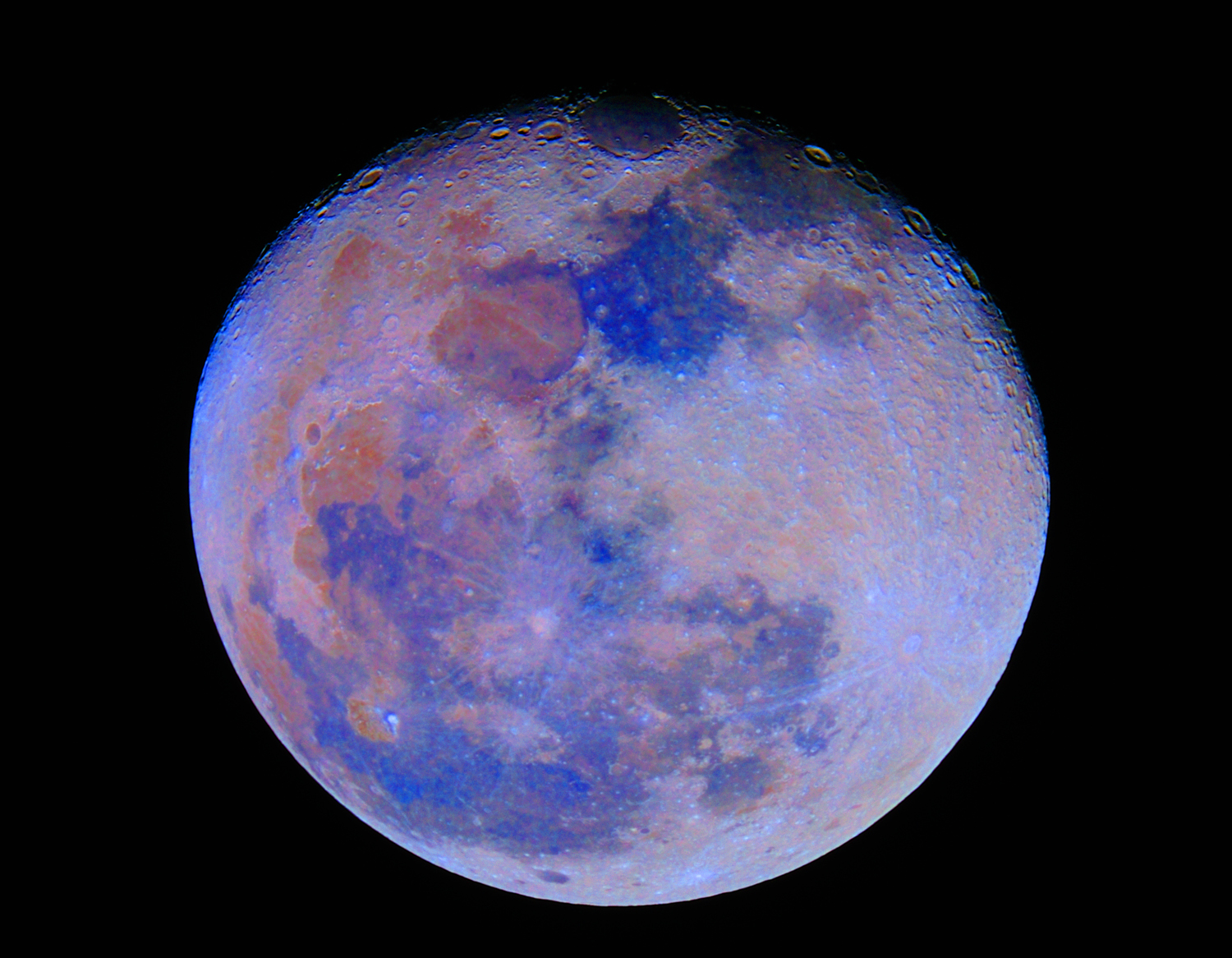
Previous Image | Back to Gallery | Next Image
| The waning gibbous moon appears here in enormously exaggerated color and yet in a clean, fairly low-noise image -- the result of merging 4 individual frames in Photoshop. Subtle color variations due to differences in the chemical composition of the lunar rocks can be seen in detail. A dead, gray world at first glance, the moon still possesses enormous variety. |
Date/Time | February 19, 2011, about 22:55 CST |
Equipment | Home-built eight-inch F/5 Newtonian telescope plus Nikon D3000 DSLR |
Settings | Telescope stopped to about F/20 using cardboard mask. Film speed set to 100 ISO. Single-frame exposure time 1/15 sec; 4 frames stacked for a total equivalent exposure of 4/15 = 0.27 sec (though the frames were merged by averaging so that the longer exposure produces lower noise rather than a brighter image). White balance auto. |
Image processing | Cropped; 4 individual frames stacked as varying-transparency layers and then merged in Adobe Photoshop; color saturation enormously increased; resized for web to 1500 pix width. |
Image dimensions before resizing | 2316x1800 |
Focus | Good: almost no blurring visible even in the full-resolution raw image. |
Motion blur | Negligible |
Image noise | Low to moderate -- reduced by stacking of 4 individual images. |
Other technical comments | None. |
![Please email any request
to use this image to ariheinze[at]hotmail.com](http://www.gloriousfirmament.com/2011A/emailpermission.jpg)